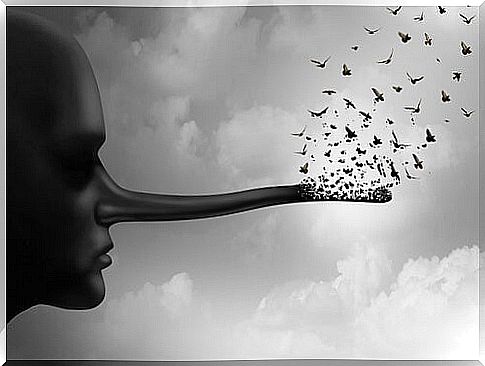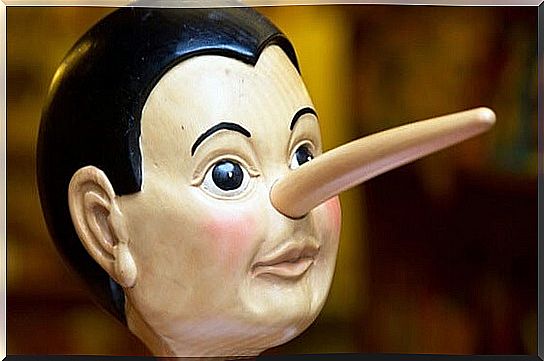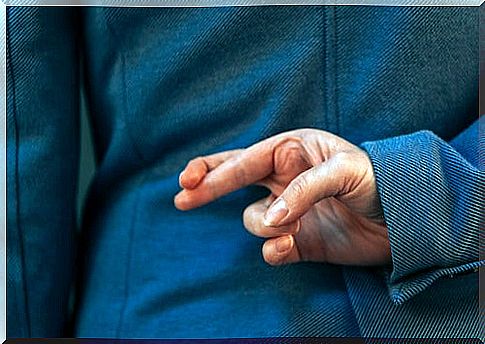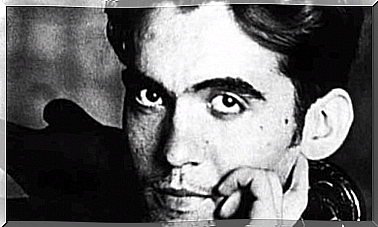Why Do We Lie?

Surely you have ever wondered why we lie. In general, we lie out of fear of the consequences of something being known : something that was done, that was not done, that was heard, that was seen, that was said or that was known.
According to the Dictionary of the Royal Spanish Academy of Language (DRAE), lying is ‘ saying or manifesting the opposite of what is known, believed or thought’. Thus, a lie is the expression or manifestation contrary to what is known, believed or thought.
On the other hand, cheating is “giving the lie the appearance of truth” or “inducing someone to believe what is not true, using apparent or feigned words and deeds.” As we can see, the lie refers to whether the content of a message adequately reflects reality or not. The act of cheating includes the key concept of intentionality or willfulness.
Why do we lie?
As we said, we lie out of fear of the consequences. We lie to blame another person, for not wanting to take responsibility, to harm another or not to face problems of our own or those of close friends.
We lie to hide something. You lie to avoid the shame you feel for what has been done and its consequences. Furthermore, if it is discovered that one has lied, there may be negative consequences, and sometimes worse than those caused by the data or fact that one tries to hide.
We also lie to gain an advantage over another person or to obtain a benefit that, telling the truth, we doubt we can achieve. Lies and deception are instruments to achieve objectives, therefore we speak of instruments. Lying is often an attempt to control and manipulate the behavior of others.

We also lie for other reasons, varied and complex. Sometimes the lie has a “positive” purpose: to help someone, as in “altruistic lies”. Also to flatter, cheer up or try to make others happy.
Another cause for which we lie is not to harm others, to avoid personal or family conflicts or to avoid frustrating plans or projects of our own or of others. It is typical not to want friends or family to know something negative about us or something that could harm them.
In many cases there is a real and well-founded fear that family, friends and relatives will suffer because of what has happened, and not wanting to harm them means that we do not tell the truth. On the other hand, lying can also be a simple and direct way to protect your privacy.
The lie almost always hides a fear
The liar almost always harbors fear, founded or not, that the truth will be known. This also contains fear of:
- Be less than others.
- Not achieving a career goal, missing a sale, or missing an order.
- Be less attractive.
- That they do not love us or that they do not appreciate us.
- That they don’t respect us.
- To lose or not to win something.
In most cases, this fear can be due to justified short-term reasons. But not in the long run. Over time, it is difficult for a lie to resist the contrast with the facts or serve to fulfill the objectives that were pursued with it. Moreover, on many occasions to maintain a lie we are forced to continue lying.
Another fear as important or more than the previous one is the fear of added punishment that can be perceived if the lie that tries to cover up one’s own responsibility or guilt or that of another is discovered. Sometimes what leads a person to continue their lie is not wanting to be found out that they are lying.

We all have, to a greater or lesser extent, the concern to make a good impression on others. When we want to save face at all costs, we can lie to present or preserve a good image of ourselves. As we have seen, we lie for a wide variety of reasons. However, behind all lies there is fear and fear of consequences that we do not want to happen.









